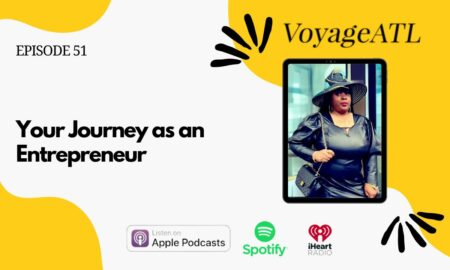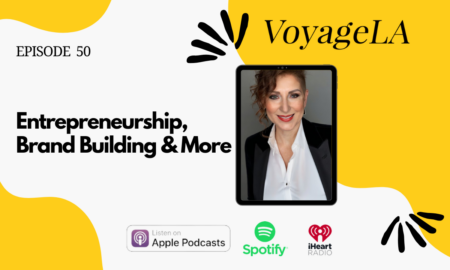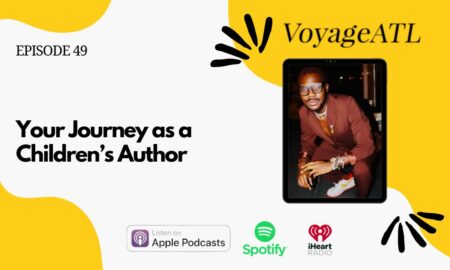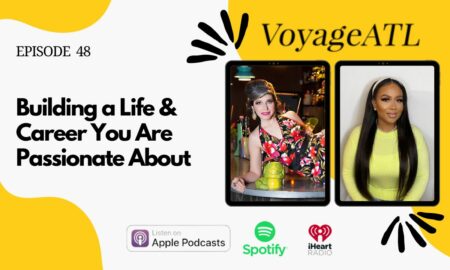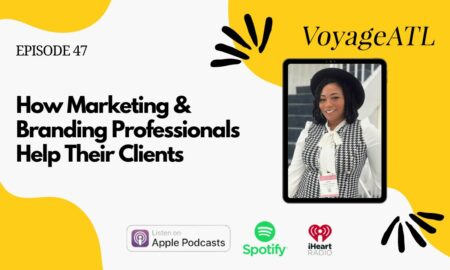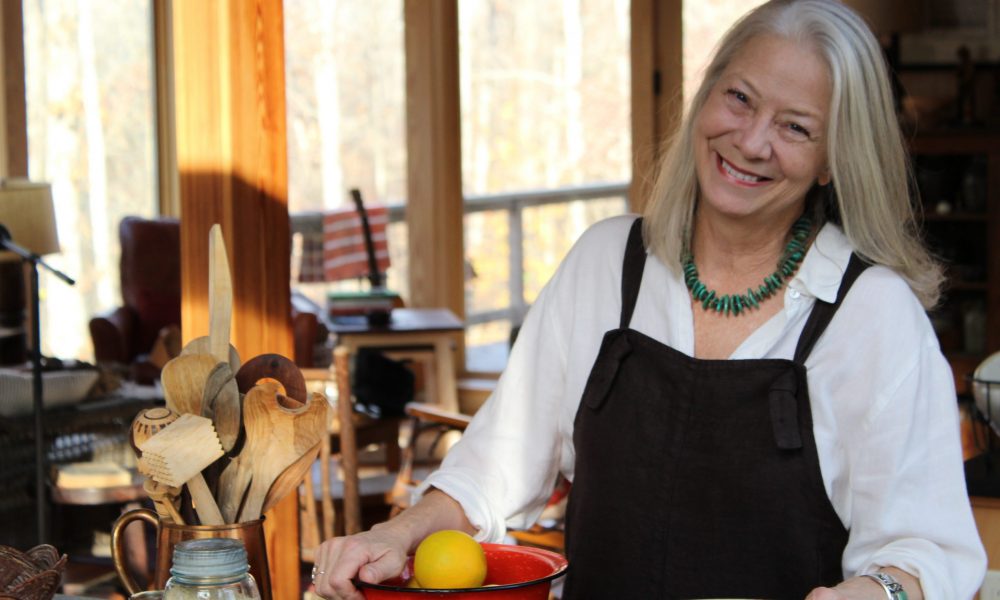

Today we’d like to introduce you to Lee Read Pilgrim.
Lee, please share your story with us. How did you get to where you are today?
After I graduated from UGA in the late 70s, I had a small antique store that gradually, morphed into a vintage clothing store. Over the years, that store moved several times and evolved into a new clothing store for women, located downtown across the street from campus.
During the 80s and 90s, lots of rayon and synthetics were being used in clothes but I always preferred natural fabrics—probably because of my history and experience with vintage and antique clothing. Although I carried some really great lines, like Urban Outfitters, Cynthia Rowley and Betsy Johnson, it was hard to find natural fabrics in simple styles, so I designed and produced a line of cotton and linen clothing locally, and that became the signature of our business. We sold accessories from around the world—Guatemala, Thailand, India—and through our styling, we created a look that was kind of unique at the time. I sold that business in the early 90s when my children were young, and taught school for a decade.
When my kids were grown, I moved to Taos, New Mexico, for several years. I fell in love with the people, the environment, the design and art. I found an ease in dressing there that I had not experienced in the south—flowing silhouettes, heritage textiles and fabrics that reflected Native American and Spanish influence. There was also a global artisan presence everywhere from the incredible Santa Fe Folk Art Festival….cowboy boots…hats! Just a wonderful profusion of color and texture, which was often rugged and functional yet beautiful.
In 2008, I moved back to Atlanta to help care for my dad who had Alzheimer’s. Living here again was a new experience (I left Atlanta at 17) and I had very little time to explore the new city, but one thing my dad enjoyed was visiting antique stores. Antiques and Beyond, on Cheshire Bridge Rd., was close by, and we’d go there and wander together, just enjoying looking at things. After my dad died, I opened a booth there (TAOS Booth) with my partner, Donnie in where we sold American primitives and southwestern pieces, some vintage cowboy boots and hats…that kind of thing. Lots of vintage Native American turquoise and jewelry.
A few years in, I introduced a few traditional Indian cotton kurtas and they started to attract attention among creative people—collectors, designers, and antique dealers who were there shopping for other things. The success of those items encouraged me to start producing my own clothing line because once again, I could not find many lines that were made from natural fabrics, that felt relaxed, stylish and creative at the same time.
I started designing a very, very small line of linen clothing, cut and sewn in Atlanta. I used small sew shops owned and operated by Atlanta women to develop patterns and produce the line. We initially did a few festivals and pop-ups and accessorized with vintage Native American jewelry and with silk and cotton kantha stitched pieces made from recycled saris. Our business grew and we began to purchase other lines of natural fabric clothing at the time, primarily from India. We opened booths at Kudzu and Company in Roswell and at Kudzu Antiques and Modern in Decatur (where we still have a vibrant presence).
In 2016, we moved into our current flagship location at 1790 Cheshire Bridge Rd., across the street from our original location at A&B. We have just celebrated our third year here! By the time we moved into our own store, we were carrying some national (made in the USA) lines, such as CP Shades, Bryn Walker and Flax, and we were developing our own private label “TAOS” that continues to be our signature. Our TAOS line is primarily made from cotton and linen and solid colors, cut, sewn and dyed in California.
We tend to keep it simple and carry styles that sell successfully so that shopping with us feels familiar and uncomplicated. If a style works, we bring it back season after season in new colors, new fabrics…I see these basics as a canvas for favorite accessories, which we now source from local artists and designers, from antique dealers and from cultures around the world. I really believe that dressing should be effortless, and that clothing should be versatile, easy to wear and easy to care for. We rarely offer clothing that needs too much special care or ironing.
I’m a simple dresser, myself, and I really enjoy the community of women and the connections that we have made through this business as much as I enjoy the fashion and styling. On the first Thursday of every month, we have an Open House where a guest either presents or engages with our visitors over wine and food. We’ll stay open late and have a great time meeting creative and inspiring women and connecting with new people. We’ve had many wonderful, inspiring guests who bring something new to the table for us to think about, enjoy or learn. I think it’s taken me a while to recognize this important function of our store; that it has become a welcoming place for women of all ages and professions, and that being part of a community—often giving back to the community—is one of my core values.
Some of our events have also been benefits for local organizations or causes that we connect with. We did a fun collaboration last fall with The Keri Hilson Foundation and our neighbors at Cape Dutch, to help provide musical instruments to students in Dekalb County Public Schools. We have collected coats and clothing for an East Atlanta preschool for parents who are getting back into the workforce, and clothing and sleepwear for the Atlanta Women’s Shelter. We have an upcoming Open House with the Carlos Museum on November 21st that will benefit the education department of the museum!
Has it been a smooth road?
I’ve made plenty of mistakes in buying and also in developing and producing my own line of clothing. My earliest mistakes were related to the costs of developing and grading a new pattern, the cost of carrying enough fabric to produce a line of clothing and the costs of production in small facilities. For the first few years, I spent a lot of time and energy working with pattern makers and small sew shops in Atlanta to develop styles—some of which were very successful, such as our signature Birkin, which is a simple linen tunic that’s been a best seller for us for more than six years.
Initially, when I tried to produce that piece in Atlanta, I bought my fabric in one California city, had it processed (prewashed and rerolled) in another, the shipped it to small sew shops here in Atlanta where the piece was cut and sewn. This process was not only costly but cumbersome and time-consuming, and ultimately, I lost quite a lot of money and it almost did me in. When I approached one of my California lines about sewing our private label for us, I was surprised to find out how willing they were to work with me and now our own line is sewn in California.
Although my business is in Atlanta, several years ago, I bought a piece of property out in the country near Athens. I designed and built a home there, and of course, it’s my dream home. Although I’m a really social person, I love quiet time, I love being in nature, gardening, creating small things, cooking. I think that in some ways, I bring that aesthetic into our store environment through the fabrics and simplicity of design, but also through my love of textiles and heritage arts and crafts. So, that’s a good thing. But it’s also hard not to have as much downtime as I probably need at my age. I miss having more quiet time, more time in the woods. Fortunately, I have a core team of wonderful women who work with me at the store and I’m grateful for the support that their energy and interest in people brings to our business. This has made it more possible for me to spend some time working from home and to know that visitors will receive the same level of care and personal attention that I believe is important for a small specialty store.
My biggest growing pains have probably been in the area of taming my optimism, understanding risks and planning ahead. I am an energetic person and I love people and often take on more than I can really handle. Our business has morphed and grown so much over the years and most of that growth has been really organic, driven by customers and also by my own curiosity and interest in people, new things or recognition of a need or niche that is unfilled and addressing it….
And that is all good, of course, but I have a hard time focusing on business essentials at times—such as…the bottom line. Ha! I work with a wonderful young woman who keeps me in line and helps direct the flow of work and tasks when I am getting distracted by low hanging fruit or glittering objects! Christy Strickland grew up in my home as a childhood friend of one of my daughters, and now she bosses me around like a mother. Christy works with a number of businesses to look at systems and goals, processes and more. She has helped me with planning, budget, social media and much more for the past four years. It has been invaluable.
So let’s switch gears a bit and go into the Ready Trading story. Tell us more about the business.
We primarily sell clothing made from natural fabrics, linen, cotton and silk; clothing that is naturally beautiful, relaxed, versatile, durable, easy to wear and easy to care for. That seems to bring people to us from around the country both online and in person. Often someone will call us or come in from out of town who has found us by searching for natural fabrics. People who love natural fabrics will go to great lengths to find them, and not all natural fabric clothing is created equal. We work hard to identify collections that are produced ethically and styles in natural fabrics that are flattering and versatile and work for women of different ages and sizes!
A majority of our lines are made in the USA but we often accessorize with heritage items from artisan communities and cultures from around the world. We believe that supporting these communities through their heritage products helps to preserve and protect important (and sometimes vanishing) traditional techniques. These pieces, jewelry, scarves, shawls and jackets often become heirloom pieces that can be cherished for generations.
How do you think the industry will change over the next decade?
One big shift that is well underway in clothing and fashion is sustainability. There are so many buzz words associated with this movement, that I won’t go into that here, but I think that the use of natural unprocessed or ethically and environmentally consciously-processed fabrics is part of this movement that will continue to grow and impact where we purchase our clothing, where the fabrics originate, where and how the clothing is produced, how much clothing we purchase, and how long we expect our clothing to last. All of those concepts are wrapped into the idea of an environmentally responsible future for the clothing industry.
The fair-trade trend is well established and plays a big part in the purchasing habits of individuals and retailers, alike. I think that will continue to become more visible to consumers who may not be tuned in at this time.
I never have any idea how style trends are going to develop, but I have been told that I’m often ahead of the curve, and thank goodness because I do not study fashion, read fashion magazines or even go to big markets in other cities…I don’t really know who designs what labels, or even care. But one important trend that I notice (often through Instagram and pop-ups in cities) and applaud small companies producing smaller collections for smaller niche markets. I think that this trend also feeds into and mirrors the sustainability trend because smaller companies can have faster turnarounds, less waste, and more direct contact with consumers. Often orders are taken well before production starts and limited “editions” for discerning customers have become popular with smaller American companies
I don’t think I even need to say that online buying will continue to be the wave of the future. But I believe that having a brick and mortar store where people can physically experience the product—touch, fit, context—will continue to be important to brands growing their online business. Whether it is through pop-up shops in different markets prior to launching a line or product, or brick and mortar locations, I believe designers need to get direct in-person feedback on their work.
I see that lack of this ability to shift gears, recognize new silhouettes, understand the buying public in larger clothing lines and collections at market sometimes, and am just blown away by all of the really BAD design out there. I’m always trying to imagine what I could do with the money that must be backing those poor designs! I think having face-to-face interaction with buyers and customers in order to get valuable feedback about fit, fabrication, fabric content, color and even pattern is pretty invaluable. For example, sometimes the company that produces our private label will cut a style for us in a completely different fabric than they are currently “showing it” in. With our feet on the ground kind of business, we hear and see more and we try to take suggestions and feedback seriously—which may be another thing that makes us just a little unique.
Contact Info:
- Address: Our READY TRADING Flagship location is
1790 Cheshire Bridge Rd. Suite #101
Atlanta, GA 30324
Our location at Kudzu Antiques & Modern is located at
2928 E Ponce de Leon Ave, Decatur, GA 30030 - Website: https://readytowearclothing.com/
- Phone: 404-883-3568
- Email: readytowearclothing@gmail.com
- Instagram: https://www.instagram.com/readytradingtaos/?hl=en
- Facebook: https://www.facebook.com/readytrading/


PHOTO CREDIT: Rabun Wild. Clothing: Yasuko Kurisaka

Image Credit:
Vanna Pilgrim
Suggest a story: VoyageATL is built on recommendations from the community; it’s how we uncover hidden gems, so if you or someone you know deserves recognition please let us know here.















